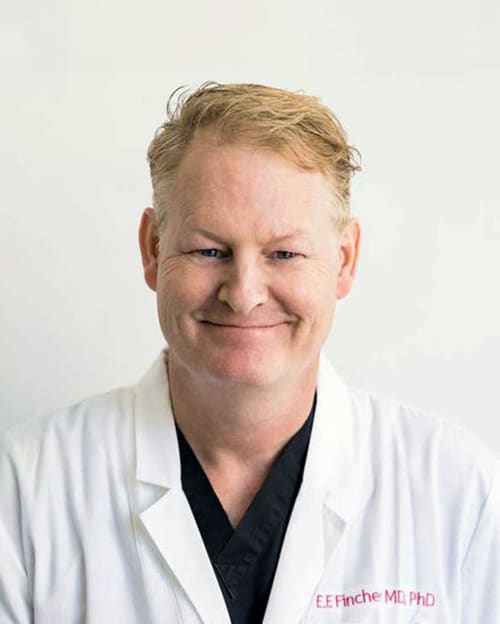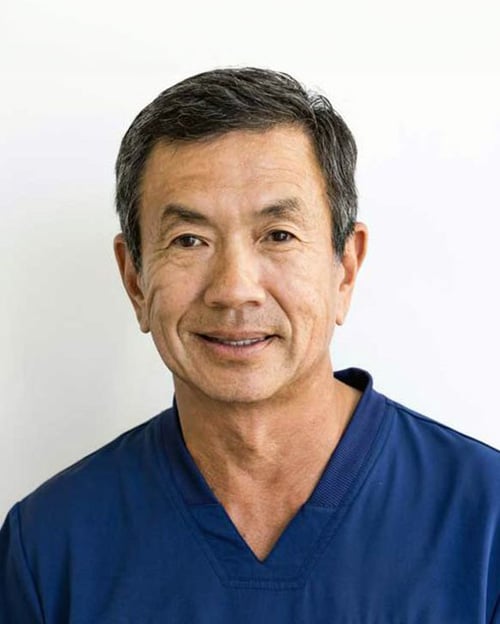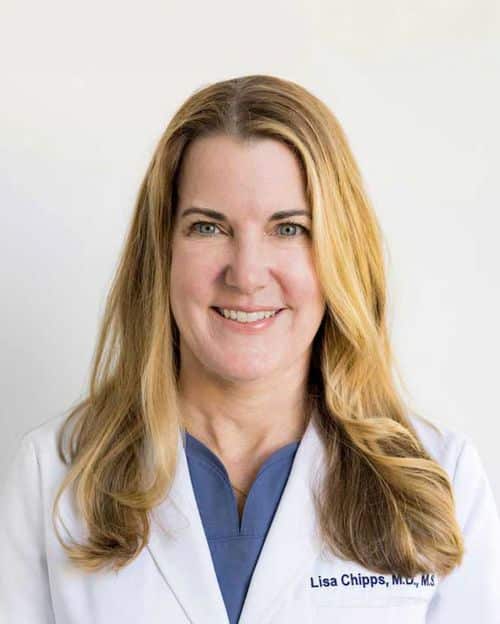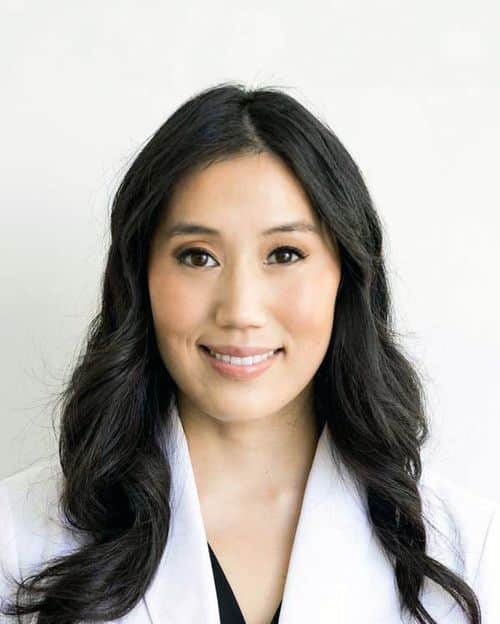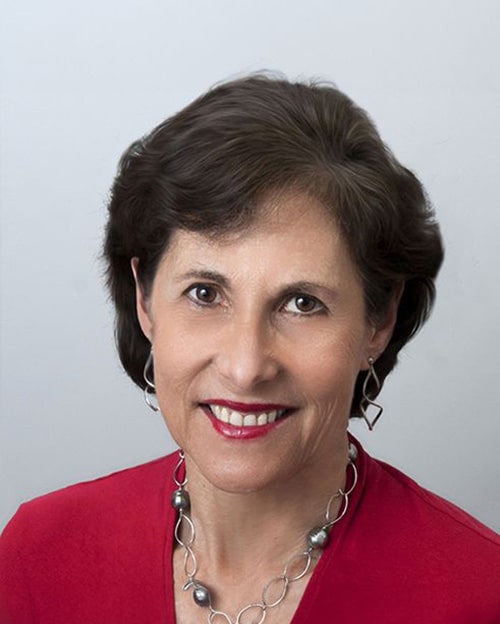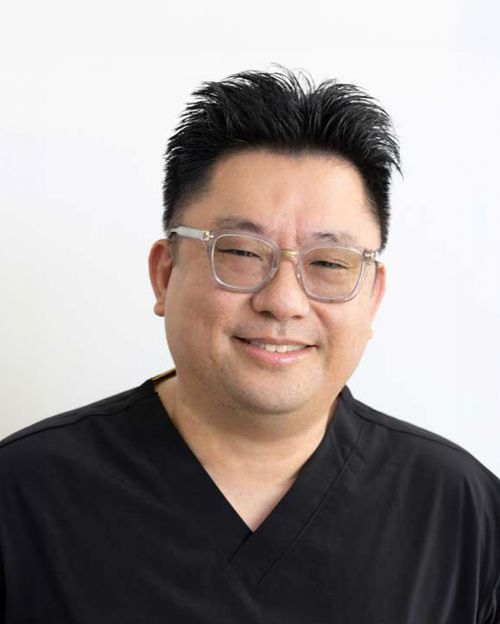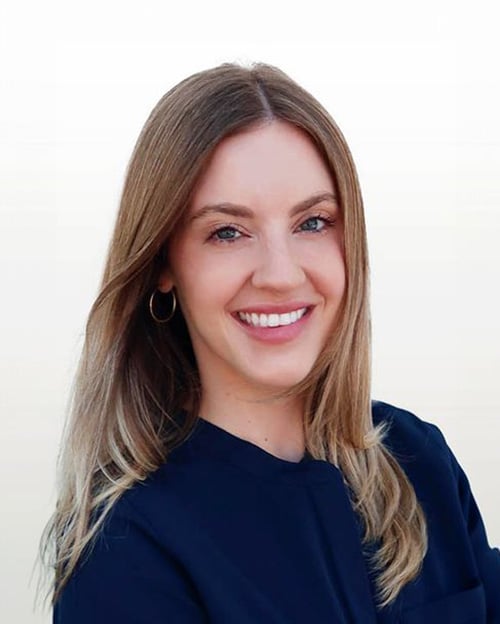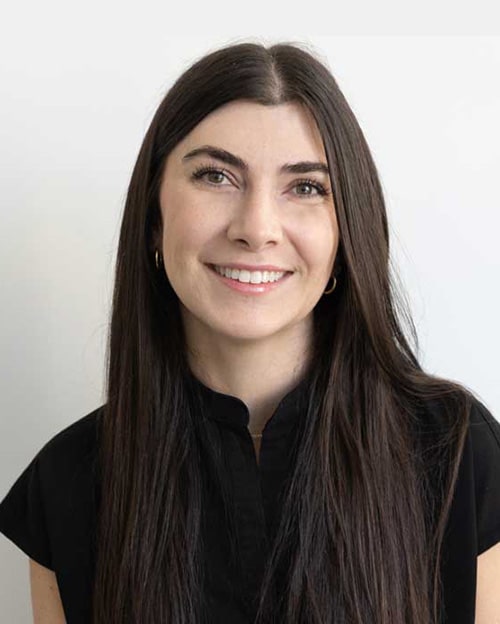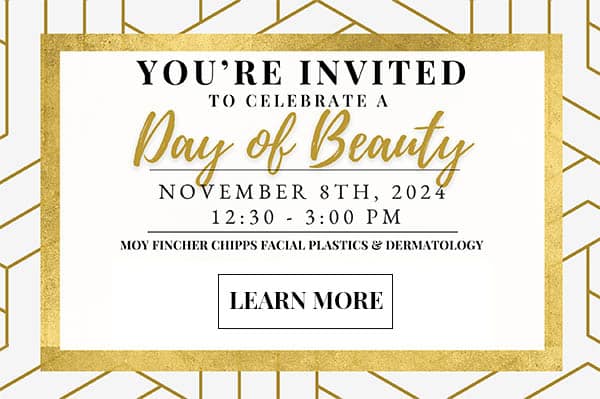Board Certified + Fellowship Trained
Dr. Edgar Fincher received both his MD and PhD degrees from The University of Tennessee, Memphis. He then completed early training in general surgery at Stanford University.
Dr. Edgar Fincher received both his MD and PhD degrees from The University of Tennessee, Memphis. He then completed early training in general surgery at Stanford University followed by a research fellowship, also at Stanford University, where he studied mechanisms of skin wound healing. Dr. Fincher then completed his dermatology residency at Stanford University before relocating to Los Angeles for a Fellowship in Mohs micrographic surgery, laser and cosmetic surgery.
Dr. Fincher has conducted numerous presentations about his surgical techniques and laser research at national meetings for dermatologic surgeons, facial plastic surgeons and laser surgeons including work on the use of cutting-edge lasers for skin rejuvenation, facelifts, blepharoplasty (eyelid surgery) for facial rejuvenation and the combined use of liposuction with Thermage for maximizing neck rejuvenation. Furthermore, Dr. Fincher has authored numerous textbook chapters and has edited two texts on facelifts and blepharoplasty.
By offering a wide range of treatments and the latest cutting-edge technology, Dr. Fincher is able to customize the ideal surgical treatment for the individual patient and provide a variety of laser techniques to ensure the ideal outcome following either cosmetic surgery or facial reconstruction after tumor removal.
Moy, Fincher, Chipps Facial Plastics & Dermatology is widely regarded as one of the leading dermatology practices nationally. Led by board-certified dermatologists Drs. Ronald Moy, Edgar Fincher, Lisa Chipps and Jennifer Herrmann – MFC has helped tens of thousands of patients with their skin care needs. From medical dermatology conditions to cosmetic dermatology concerns, there’s little the dermatologists at MFC have not treated. So, who better to ask about the ideal skin care regime? Stop trying department store skin care products with little results. Ditch the Pinterest at home facial masks. In this series of Question & Answer Interviews we go straight to the nation’s leading skin care experts to find out their daily skin care regimen.
How would you describe your skin type?
I am fair-skinned (skin type I-II) and as a result I have a tendency towards dryness, easy irritation, redness, inflammation and even Rosacea. Because of this, I have to focus my skin care on avoiding irritating products and providing a lot of hydration to my skin.
How would you describe your daily skincare regimen?
My basic daily skin care routine consists of washing with a gentle cleanser both morning and night to remove the oils and toxins, followed by replenishing the moisture with a good hydrating cream. I prefer foaming or crème cleansers since they are gentle on the skin yet effective in cleaning. Afterwards, I always apply a moisturizer to soothe and revitalize the skin. A few of my favorite plain moisturizers (non-medicated, no active ingredients) are Kiehl’s Ultra Facial Cream or SkinCeuticals Triple-Lipid Restore.
If you can, what is your one skincare tips to live by?
You have to protect your skin from the sun, so always apply sunscreen if you are going to be out of doors. Sunscreens must be gentle but absolutely effective for people like myself who will burn very quickly when exposed to direct sunlight. As such, I use Elta MD products. UV Clear for daily wear and UV Sport for golf, running, beach and other outdoor activities.
What other advice do you have to achieve and maintain healthy skin?
The other important component of a good skin care regimen is to add a product that helps reverse sun damage and builds collagen. As far as rejuvenating products go, I have to be careful because most of these products such as retinoids and glycolic acids tend to cause more irritation which leads to red, dry and irritated skin. Those of us with lighter skin tend to be more sensitive to these products. I always encourage patients to use a retinoid (tretinoin), if tolerated, to firm and brighten skin and also to promote new collagen production. Tretinoin can be formulated into hyaluronic acid-based formulas that add hydration and ease the irritation associated with the retinoid. Using the product less frequently is also an option, for example every other night. Additionally, growth factor containing creams can also aid in building new collagen and promoting healthy beautiful skin. I recommend the DNA Regeneration Serum containing EGF (Epidermal Growth Factor).
Q: What inspired you to become a dermatologist in Beverly Hills?
A: I initially started my medical training in surgery and head and neck surgery, but then switched to dermatology. At the time, my wife was finishing her dermatology residency and she enlightened me about all of the wonderful advances that were happening in the field. Dermatologists are the leaders in laser technology, skin cancer surgery and reconstruction, and cosmetic surgeries given the proper training and skills. I opted to leave my training and switched to dermatology instead.
Q: Do you specialize in a specific area of dermatology?
A: I specialize in Mohs micrographic surgery and cosmetic surgery (facelifts, neck lifts, eyelid surgery, liposuction and laser treatments). I enjoy the technical aspects of curing skin cancer and then reconstructing the defects. With regards to aesthetic surgery, there is a similar satisfaction in providing a patient with a permanent enhancement or turning back the clock to provide beautiful outcomes.
Q: What makes Moy, Fincher, Chipps Facial Plastics & Dermatology the leading dermatology practice in Beverly Hills?
A: Moy, Fincher, Chipps Facial Plastics and Dermatology offers patients the full spectrum of services with the latest technology available. Whether it be skin cancer removal and reconstruction, mole removals, laser treatments or cosmetic surgery, our physicians provide the talent and expertise needed to meet patients’ needs, and deliver great results.
Q: What is one piece of skin care advice you frequently offer to your patients in Beverly Hills?
A: Wear sunscreen. It is most important for reducing the risk of precancers and skin cancers, and reducing the visible signs of aging. Too much sun can lead to an increase in the risk of skin cancer, and to accelerated aging including lines, wrinkles, brown discoloration and unwanted growths on the skin.
Many patients will also benefit from appropriate skin care products such as moisturizers, face washes, retinols or glycolics. Matching the correct product to the patient’s individual skin type is crucial to achieving beautiful healthy skin.
Q: What is your approach to providing patient care?
A: Each patient is an individual with specific needs. I tailor my care towards a person’s needs and expectations while, at the same time, adding my professional experience to achieve the best results.

